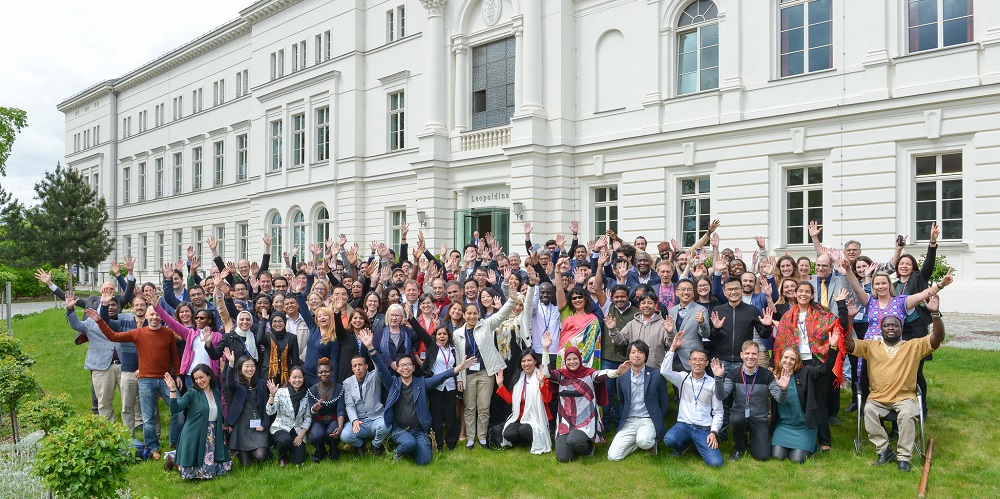
The Global Young Academy (GYA) aims at giving a voice to young scientists all around the world. The Academy is governed by an annually elected Executive Committee reflecting the diversity of its membership, which consists of leading young scientists who find themselves in the early stages of their independent academic careers. Dr Koen Vermeir, Co-Chair of the GYA gives more insights on their activities and engagement with the ISC.
Q: As an introduction to GYA, could you please tell us a bit more about the organization, its activities and its members?
The GYA was founded in 2010 with the support of the international science community. With 200 members from six continents, the GYA empowers early-career scientists and scholars to lead international, interdisciplinary, and intergenerational dialogue. Its purpose is to promote reason and inclusiveness in global decision-making. Members are selected for their demonstrated excellence in scientific achievement and service to society.
The mission of the GYA is to give a voice to young scientists around the world. Global problems, such as health epidemics, biodiversity loss, a warming planet, data privacy, and displacement of nine percent of the global population, exacerbated by conflict and climate change, all demonstrate the urgent need for cross-disciplinary, cross-border cooperation to find and implement solutions. The GYA empowers early-career scientists and scholars to generate new ideas, take action and contribute to society so we can work together to find solutions for a sustainable future. More information on our activities can be found here.
Q: Why does your organization and its members consider it valuable to be part of the ISC?
The GYA and the ISC are natural partners. We have worked together from the founding of the ISC, and before, with the ICSU and the ISSC. Right now, the GYA and the ISC are the only international civil society organizations that have a truly global scope, and that bring together the natural and social sciences. The GYA and the ISC also complement each other: the GYA’s mission is to give a voice to young scientists worldwide while the ISC’s mission is to act as the global voice for science. We are thus looking forward to working together more closely with the ISC and its member organizations. By becoming an affiliated member, the GYA will bring a new, young and diverse perspective to the ISC, full of new ideas and energy.
Q: What are your key priorities for the next few years? What do you see as the key priorities for science in the coming years?
It is the GYA’s priority to empower early- to mid-career researchers to contribute to society. We do this by connecting them better, by organizing them in projects and thematic working groups and by training them to become science leaders. We don’t only support our members and alumni but also national young academies and other young scientist organizations. We also work to strengthen the voice of young scientists on global platforms that promote evidence-informed solutions to regional and global challenges, we give young scientists more visibility and opportunities for growth. Our collaboration with the ISC and its member organizations will play a crucial role in realizing these priorities and to bring the voice of young scientists further than ever before. As a result, young scientists will be better equipped to contribute to society and collaboratively address global challenges.
Global Young Academy activities have focused on science for policy, policy for science, and science education and outreach, with the UN Sustainable Development Goals as a cross-cutting theme. In the next years, our actions will be geared towards improving the science system and contributing to a sustainable future. Current science systems are being challenged internally as well as from society’s demands on science, and young scientists are disproportionately affected. As such, it is a priority for us to address unfairness, inequality and inequity in the global scientific ecosystem. Our other actions will address progress towards a sustainable future. Young people, and especially young scientists are eager to contribute to the SDGs, because they want to take part in, and take responsibility for, the building of their future.
Q: Delivering the projects outlined in our 2019 – 2021 Action Plan will highly depend on close collaboration with our members. Are there any projects that you are particularly interested and considering to get involved in?
Given the complimentary nature of our organizations, it will not come as a surprise that we are very much aligned with the current ISC action plan, and we are eager to contribute to virtually all domains, with a special focus on SDGs and sustainability, science-policy interfaces, the public value of science, gender equality, at-risk scholars, open science, the future of scientific publishing, and knowledge as a global public good, with a new interest also in the digital revolution and science in the private sector. We are looking forward to take our collaboration further in all these domains.
Learn more about our members by browsing the ISC membership online directory.